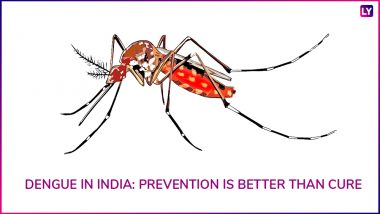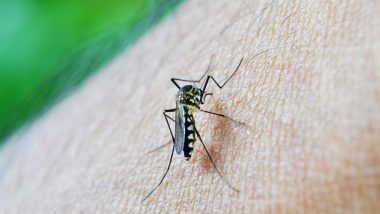It is a no-brainer that In the last few years Dengue cases have shot up. Statistics say that in the past 50 years the Dengue incidences have increased 30-fold. Dengue is only expanding to newer countries, further increasing the burden. According to WHO the best method to stay safe in this case would be adopting various prevention methods. According to the World Health Organisation, 'WHO recommends prevention of dengue through vector control methods such as mosquito habitat removal and use of insecticides.'
WHO's statistics also reveal that about 50 million dengue infections occur annually and approximately 2.5 billion people live in dengue-endemic countries. This only makes the situations worse and our fight against the disease tougher. WHO says, 'Children are at a higher risk of severe dengue. Intensive care is required for severely ill patients, including intravenous fluids, blood or plasma transfusion and medicines. Dengue afflicts all levels of society but the burden may be higher among the poorest who
grow up in communities with inadequate water supply and solid waste infrastructure, and where conditions are most favourable for multiplication of the main vector, Ae. aegypti.' For a better prevention from Dengue, we must first understand the disease well and Why Some People Are More Prone To This Vector-Borne Disease Than The Others? Expert Speaks
According to Dr D S Chaddha, Director & HOD, Internal Medicine at Fortis Vasant Kunj-“Dengue results in high fever, rash, severe headache, pain behind the eyes, muscle pain and joint pain. Nausea, vomiting, and loss of appetite are common. A rash usually appears three to four days after the start of the fever. The patient sometimes gets a transient flushing pink colour on the face with the glands in the neck and groin swelling up. Dengue illness can last up to 10 days, but complete recovery can take as long as a month. There is no specific treatment or vaccines for dengue. It is treated symptomatically. The principal aim is to control the temperature fluctuation, maintain hydration and provide relief from joint pain.”
Dr Rajeev Gupta, Senior Consultant, Fortis Hospital, Shalimar Bagh gives us a few tips to prevent dengue:
- Make sure all egg-laying habitats of mosquitoes, such as open and stagnant water sources are cleaned up
- If there are any open water sources you cannot eliminate, cover them and apply appropriate insecticides
- Use protections such as window screens, long-sleeved clothes, insecticide-treated materials, coils, vaporizers and repellant creams to avoid being bitten by mosquitos
- A person can suffer from dengue a second time if the viral strain is different from the initial infection. So ensure adequate protection
The number of cases reported annually to WHO range from 0.4 to 1.3 million
in the decade 1996 -2005 and this statistic can only improve if there are prevention measures taken to help beat Dengue. Do you know these Home Remedies For Malaria and Dengue? 5 Ingredients To Treat These Vector-Borne Diseases At Home and Papaya Leaf and Dengue: Is This Natural Remedy for Increasing Platelet Count a Hoax or Truth?
(The above story first appeared on LatestLY on Aug 07, 2018 03:50 PM IST. For more news and updates on politics, world, sports, entertainment and lifestyle, log on to our website latestly.com).













 Quickly
Quickly



















